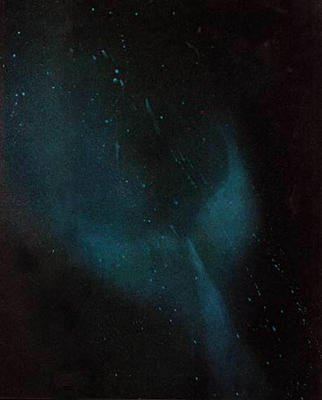Freighting the Whale III: The Fraternity of Depths

In the "The Honor and Glory of Whaling" chapter of Moby Dick, Melville seeks to add depth and resonance to his already sea-wild and most worthy tale by joining the task of the Pequod -- or rather, of dark Ahab and the White Whale -- or, rather still, of a contemporary author and the next timeless work -- with primary sources. "The more I dive into this matter of whaling," he writes in the chapter, "and push my researches up to the very spring-head of it, so much the more am I impressed with its great honorableness and antiquity; and especially when I find so many great demi-gods and heroes, prophets of all sorts, who one way or other have shed distinction upon it."
Then adds this kicker, which is my theme: "I am transported with the reflection that I myself belong, though but subordinately, to so emblazoned a fraternity."
Melville then ranges through a variety of mythic whale-sized endeavors, from Perseus freeing Andromeda from Leviathan to Jonah spending three nights in a whale, Hercules battling his way out of one and St. George fighting the Dragon (offering that whales and dragons were often confused, and quotes Ezekiel: "Thou art as a lion of the waters, and as a dragon of the sea").
Yet that is not enough: his greatest effort calls for an even more fundamental source. So he writes,
"Nor do heroes, saints, demigods and prophets alone compose the whole roll of our order. Our grand master is till to be named, for like royal kings of old times, we find the headwaters of our fraternity in nothing short of the great gods themselves. That wonderful oriental story is now rehearsed from Shaster, which gives us the dread Vishnoo, one of the three persons in the godhead of the Hindoos; gives us this divine Vishnoo himself for our Lord; -- Vishnoo, who, by the first of his ten earthly incarnations, has for ever set apart and sanctified the whale.
"When Bramha, or the God of Gods, saith the Shaster, resolved to recreate the world after one of its periodic dissolutions, he gave birth to Vishnoo, to preside over the work; but the Vedas, or mystical books, whose perusal would seem to have been indispensible to Vishnoo before beginning the creation, and which must have contained something in the shape of practical hints to young architects, these Vedas were lying at the bottom of the waters; so Vishnoo became incarnate as a whale, and sending down to the uttermost depths, rescued the sacred volumes. Was not this Vishnoo a whalemen, then? ever as a man rides a horse is called a horseman?"
***
Indeed. The tale transforms the deeper it goes. Melville descends from the contemporary reality of whale-hunting to the history and mystery of whale-harrowing, riding the whale, camping in the whale, fighting out of the whale, all the way down to becoming the whale, a sort of shamanic assumption of the whale's body, flukes and all. And there, at the bottom of things, is the very text that enables God to create the world and Melville to write his book -- infernal Vedas, perhaps; certainly a language fit for the task.

<< Home